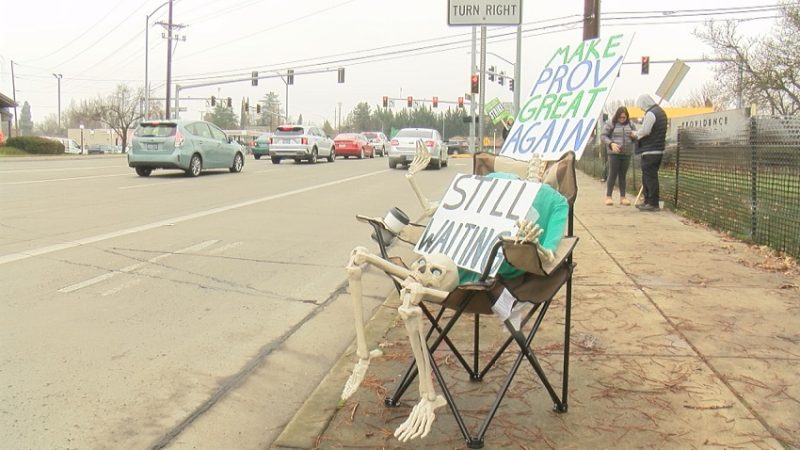MEDFORD, OR– Nurses represented by the Oregon Nurses Association (ONA) have returned to the picket lines at Providence Medford Medical Center, marking the second strike in less than a year. The strike, which began on January 14, 2025, follows over a year of contentious contract negotiations between ONA and Providence Health & Services. The current contract expired in March 2024, and the primary issues fueling the strike include safe staffing levels, employee benefits, and competitive wages.
Providence Health & Services has stated that it is prepared to resume negotiations with ONA at six hospital locations across Oregon, including Providence Medford, Providence Hood River, Providence Milwaukie, Providence Newberg, Providence Seaside, and Providence Willamette Falls. According to a statement from the hospital system, the advance preparation efforts—such as recruiting and training temporary replacement nurses—have enabled Providence to free up its negotiation teams. The hospital group also noted that an unprecedented number of ONA-represented nurses have chosen to continue working during the strike.
Despite this, the strike is still ongoing in Medford, where nurses have gathered at the corner of E. McAndrews Road and Crater Lake Ave. As the dispute drags on, both ONA and Providence have confirmed that some nurses have crossed the picket line and returned to their duties. Breanna Zabel, a registered nurse and co-chair of the staffing committee at Providence Medford, expressed understanding for those who returned to work, citing financial pressures as the primary motivator.
“There are some nurses that crossed for financial reasons,” Zabel said in an interview with NewsWatch 12. “I know that a lot of those nurses do support us out here, though.” Zabel, like many of her colleagues, emphasized the difficult personal decisions faced by nurses caught between their commitment to the strike and the need to support their families financially.
The strike marks the latest chapter in a protracted labor dispute that began in January 2024. The main concerns voiced by ONA include inadequate staffing levels that compromise patient safety, lagging benefits, and wages that fail to keep pace with the rising cost of living. ONA has made it clear that these issues are central to their decision to strike again.
Zabel noted the financial strain that many nurses are facing as a result of the strike. “None of us can afford this strike,” she said. “There are some nurses that felt they had to cross to take care of their family.” This highlights the growing tension between the financial realities faced by healthcare workers and the broader demands for improved working conditions.
While Providence has informed mediators and the media that it is ready to resume negotiations, ONA officials have stated that they have not yet heard from the mediators about when those talks will take place. However, despite feeling exhausted from the year-long negotiation process, ONA members like Zabel remain optimistic that a resolution is possible.
“We’re all here for the same goal,” she said, “and that’s safe staffing and making sure that we have the resources to take care of our patients.”

